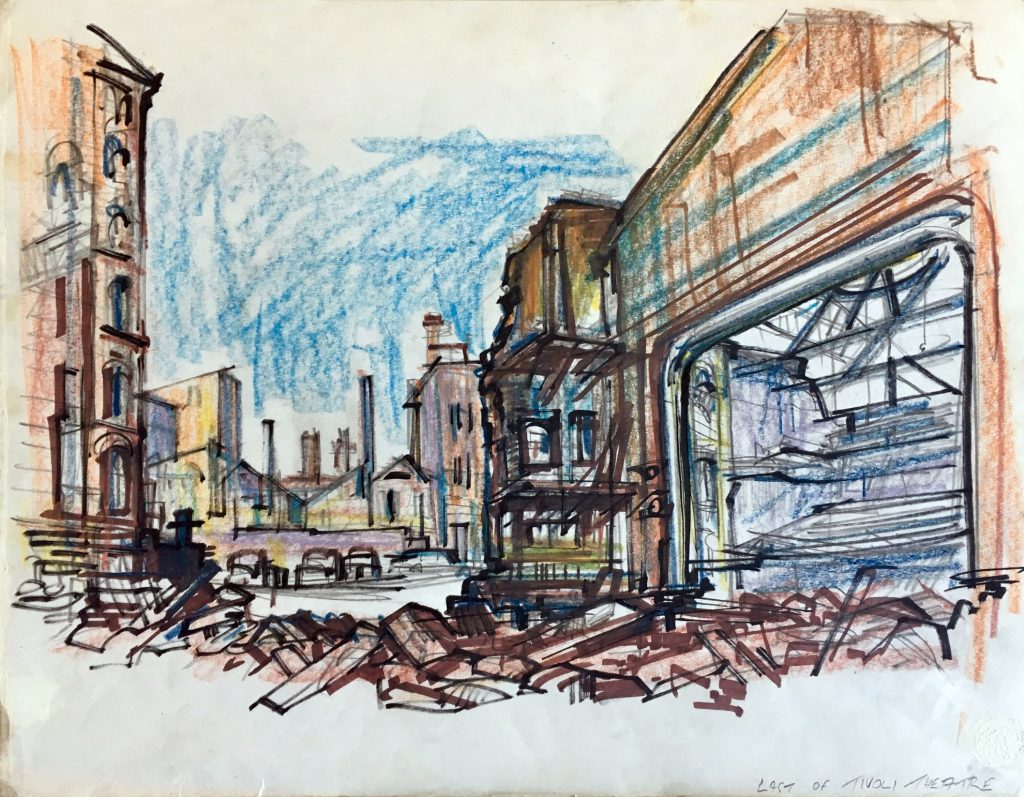obverse: Last of the Tivoli Theatre
verso: several black marker sketches of deers, a horse and two owls, four grey lead sketches of different buildings, and a grey lead sketch of a coat of arms.
Ernest Marcuse, drawing, 20th-century Melbourne, Tivoli Theatre, fire, c1967
Summary
Born in Berlin, Ernest Marcuse (1900–85) studied at the Berlin School of Interior Design & Cabinetmaking and at the Reimann School before working as a freelance commercial artist, specialising in architectural, industrial and figurative drawing. With the rise of Nazism in 1933, Marcuse’s ability to work freely in Germany was curtailed due to his Jewish heritage, and he soon left for Britain, where he met his wife. He arrived in Australia as a refugee in October 1939, but unlike many refugees during wartime he was not interned. His artistic talent recognised, he was allowed to pursue employment, and within a month he was creating illustrations for ‘The Argus’, focusing on war themes and events. From 1942 to 1945 he was in the Australian Army at Bonegilla (Vic.) and at Woodside (SA), where he created artwork and layouts for officer training manuals, work for which he was much praised by his superiors. Following the war, until 1969, he was a freelance commercial and graphic artist.
The collection holds two pen, pastel and marker drawings by Marcuse that show details of the 1967 demolition of the Tivoli Theatre, which once stood in Bourke Street. Designed in Moorish style by William Pitt, the building was opened in 1901 as the New Opera House, and it became a longstanding venue for vaudeville and variety entertainment. In 1912, it was renamed the Tivoli Theatre. Significantly modernised in 1956, the Tivoli was closed in April 1966, before opening a month later as a cinema – a short-lived career, however, as flames engulfed the cinema 11 months later. The two drawings of the fire’s aftermath were acquired for the collection in 2019.
